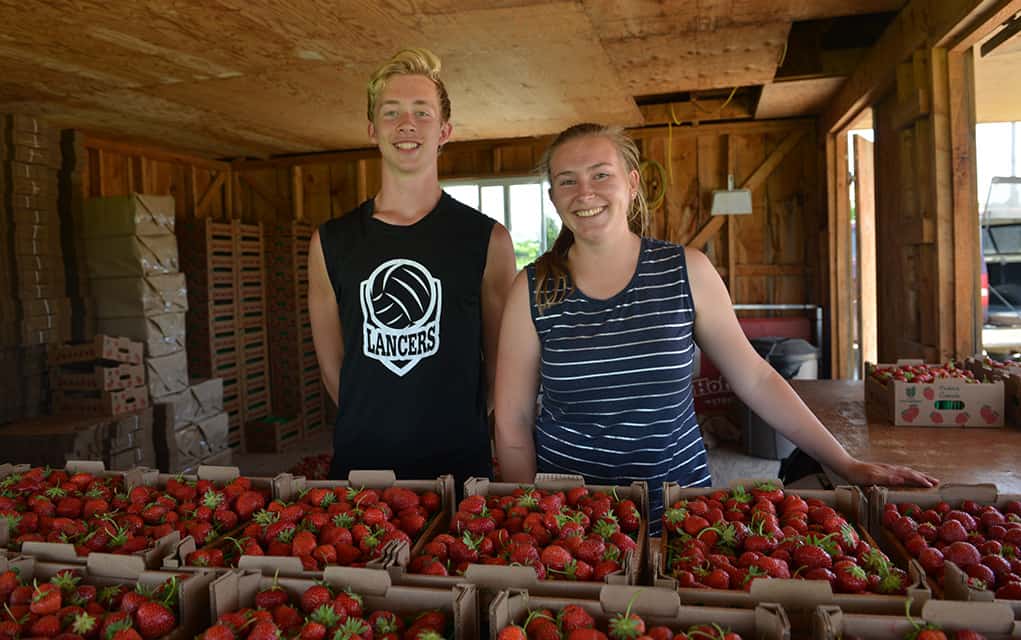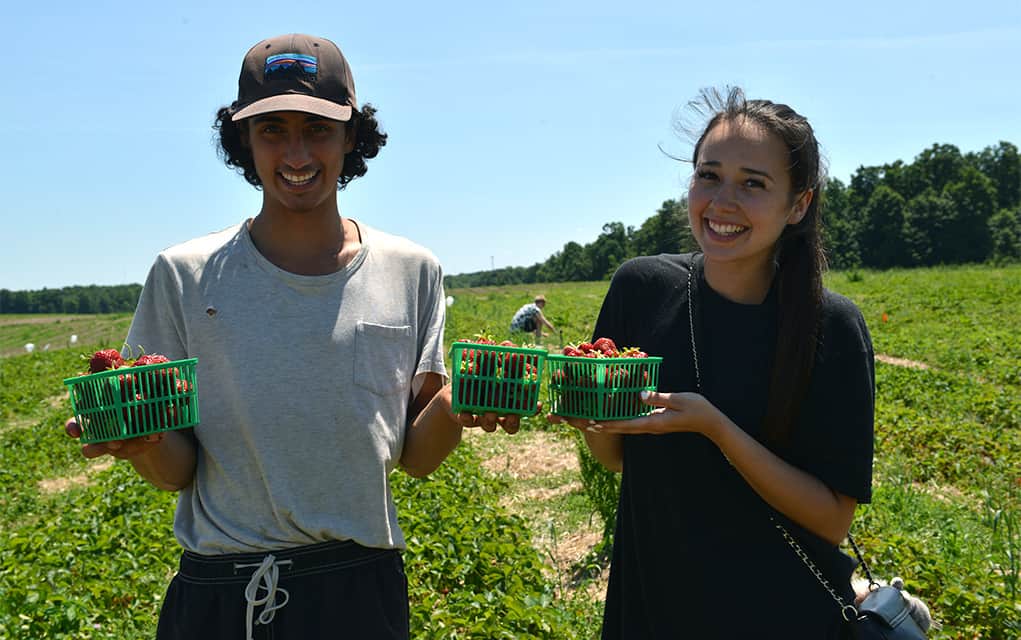Farmers’ Market Ontario is very much an advocate for the offerings of genuine, local farmers. To that end, the organization is alert for resellers who simply purchase produce and attempt to pass it off as their own products.
Resellers are a problem as they do not have to pay the high costs of starting up and maintaining a farm. They can easily undercut the real farmers by selling for just slightly under the original price. Consumers had no way of knowing if they were purchasing directly from a local farmer or if they were buying from resellers. This is why FMO developed the MyPick Verified Local Farmers program.
“It’s a program to verify that the farmer coming to the market is the real farmer,” said Catherine Clark, executive director of Farmers’ Market Ontario. “And everything that he brings to the market is his own. We’re very proud of this program and we hope that people can embrace that our organization is really trying to showcase real farmers.”
Resellers aren’t a particularly new issue, but an unexpected one for many farmers.
“There was the case of the CBC episode with the Peterborough farmers’ market, and the McLean farm particularly,” explained Clark. “I know the daughter very well, and she said ‘I never thought in a million years I’d have to prove that I’m a farmer.’ And that’s the way that a lot of farmers feel.”
The FMO has just implemented a new strategy in order to raise awareness of this issue in the form of online videos. Some of these videos include “How Farmers’ Markets Can Ensure Farmer & Vendor Authenticity,” “Regulatory Requirements for Produce Sold in Ontario,” and “Tools to Assist Farmers’ Markets with Authenticity: Best Practice & Success Stories.”
“These videos were produced to educate the shopper on our program about the verified local farmer program out there that you will find real farmers,” said Clark. “Our 100% farmers bringing their stuff. Part of that is that regulatory requirement for produce sold in Ontario. That’s in partnership with the Ministry of Ag. and Food. It’s a regulation that’s been around for a long time. And with the traceability and labelling issues, we felt that it was important, that vendors need to be involved in it. And shoppers should be happy that what they’re buying is from Ontario.”
The tension between resellers and farmers is high, as many farmers depend on the profits made from direct sales.
“For our family, the farmers’ market has been super important,” says MyPick Verified Local Farmer Steve Fekete. “It’s our sole source of income.”
Clark also stressed the importance of buying local.
“As a shopper, they want to know where their food is coming from,” she explained. “Whether it’s organic or conventional; there is a bit of confusion when someone says ‘I want local,’ and they think it’s organic, or ‘I want organic,’ thinking it’s local. There is a miscommunication in terms of the word local. The shopper is confused. Local isn’t organic and organic isn’t local.”
Other reasons to buy local include getting tips as to how to prepare your food, keeping money within the community, reducing your carbon footprint, and connect with those who grow your food.
“Honestly, I had no idea that this was an issue,” said Jason McIntee, a shopper from Wellesley. “But it seems like something more people should be aware of. We need more people fighting for the people who work countless hours to make sure there’s fresh food available to us and our families.”
Formed 25 years ago, the FMO and its MyPick program are entirely voluntary. There is a list of requirement that one must meet to become a member, as well as a membership fee.
“We need a vendors list – you must meet the public health departments’ regulation of the 51 per cent producer rule under the food premise fact,” Clark explained of the program’s requirements. “We’ve implemented that rule to become a member. It just made sure that we were accepting a true farmers’ market in terms of vendor-producer ratio.”
For more information, visit www.farmersmarketontario.com









